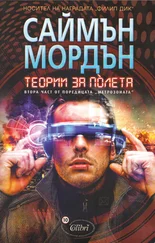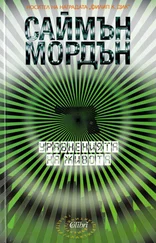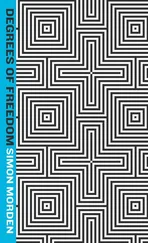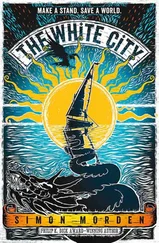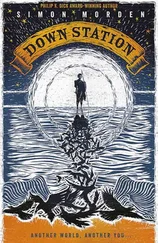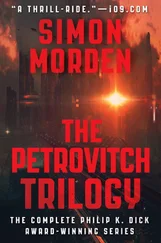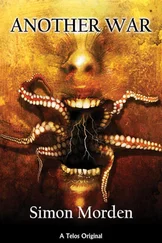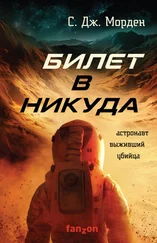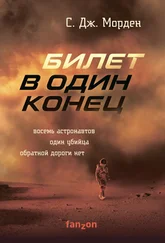“Hmm,” she said sleepily.
There was a clock on her microwave. He stood up, taking the blanket with him to cover his bare legs, and picked his way into the kitchen area. He stared at the blue glowing lights.
“I’m going to have to go. Marchenkho is one of those people who you really don’t want to be late for.”
“You walking?”
“I’m feeling better, and it’s not like it’s far. And it’s not really something you can call a cab for.” He retrieved his trousers and struggled into them. “Oshicora Tower, please, and hurry: I’m in an armed gang and we’re storming it this morning.”
“Just thinking about your heart.”
“It’s not like I need it, long-term.” He pulled his socks on and started to lace up his boots.
Pif stretched and shuffled to a sitting position. “You want anything else? A coffee?”
“My adrenaline will do just fine. Umbrella?”
“There’s one by the door. Somewhere.”
“I’ll find it if I need it.”
“Do you suppose it’s still raining?”
“I can’t imagine there’s any more rain left in the sky.” Petrovitch moved to the window and twitched the curtain. Outside was balanced between night and day. He looked up to the underside of the sky, and caught the red glow from the base of the clouds; looked down to see the shining courtyard below, bounded by four slabs of window-pierced concrete.
“Don’t throw your life away, Sam. Make someone take it from you. Make it expensive.” She held out the butt of the Jericho to him.
“Keep it, just in case. Anyway, I’ve only got two hands.” It was time to go. He picked up the Norinco and eased it into his waistband. The Beretta he stuffed low into his sock. “Maybe I’ll see you around?”
“Last chance to back out,” she said, resting her chin on the arm of the sofa.
“I’m so far past last chances that last chance is nothing but a dot in the distance behind me.” Petrovitch stepped across the floor like he was picking his way through a minefield. He put his hand on the doorknob. “Lock it when I’ve gone.”
There didn’t seem to be anything else to say, so he left.
Outside in the corridor, he leaned his head against the cool white wall and took a steadying breath. If he’d been in his own domik, he wouldn’t have been alone. There would have been corridor dwellers or shift workers or whores or dealers or muggers. In a student accommodation block with paycops on the doors downstairs, his were the only footsteps he heard as he skipped down the stairwell.
Living like Pif did, insulated from the outside, in a place which didn’t stink of rust and mold, where your neighbors weren’t plotting to kill you and take your space—it was different.
And for Petrovitch, who’d always clung by his fingernails to the edge of existence, it came as a revelation. He’d deliberately chosen the domiks over this bright, clean, warm life. The corner of his mouth twitched with the realization that perhaps he’d made a mistake.
The paycop on the door let him out with a grunt. The screen on his desk was a storm of static.
Suddenly, it was cold. The damp dawn air goosebumped the flesh on his bare arms, and he regretted the loss of his jacket. Thought followed thought; he’d lost a lot more than just a piece of clothing. He hunched his back against the weather, and set off across the campus.
There was one more airlock of comfortable warmth to enter. He passed through the foyer, showed his singed student card to those on duty, and hesitated at the main doors.
Something was wrong, and it took him a moment to see what it was. The street outside was all but deserted, and he’d never seen it like that before. He turned to the guards, who seemed to have caught the same sense of disquiet as he had. They huddled close together at the reception desk, talking quietly amongst themselves and casting the occasional glance through the windows.
A car, two cars, went by with their headlights blue-white bright, but then nothing. The pavements, the same ones that he was used to grinding his way along everyday, were wet with moisture that reflected the street lights. There were people, just not enough of them for him to feel comfortable. He’d stick out, exposed in plain sight.
The clock on the wall clicked to eleven minutes past six. He was going to be late. He felt the cold press of the gun at the base of his spine, the weight on his right ankle.
He tapped the door mechanism. “What’s the worst that can happen?” he said to himself as he waited, and waited, for the door to open. After a while, he shoved at it instead, and eventually it wheezed aside enough for him to slip out.
The cold returned, and he assumed his usual head-down posture for the road.
Except that it was impossible to maintain. There were too few pedestrians. He felt compelled to look at them, commit the cardinal sin of making eye contact for a brief moment as they passed. Everyone had the same expression, one that showed that deep down, no matter their bluff, they were afraid.
Petrovitch could only assume that his eyes held that same fear.
He crossed the road, walking at a diagonal. In all his years in the Metrozone, he’d never done such a thing. He passed darkened shops that he couldn’t remember ever closing. Their signs were illuminated, but inside was gray gloom.
He turned out of Exhibition Road, turned right. Across, on the other side, was Hyde Park, just as still as it had been yesterday. Yet today, it wasn’t the stillness of death that emanated from the miasma. It was the silence of a held breath.
It wasn’t only the city that was waiting for something to happen. Petrovitch pushed his hands up inside his T-shirt sleeves, and hurried along to Hyde Park corner.
Marchenkho wasn’t there, and Petrovitch had no watch or phone to tell him the right time. He could be late, or early. The only thing he was certain of was that he had the right day. So he stood under the Wellington Arch while a dozen vaguely human-shaped piles of bags and blankets slept around him, making the most of the shelter.
In the distance, he heard the sound of bells ringing the half-hour. Now Marchenkho was late. He jumped up and down and swung his hands around, both trying to keep warm and wishing to evaporate the cold sweat that had broken out across his body. He shivered.
In the distance, coming up Grosvenor Place, was a line of black cars. At first, he thought it another strange computer-directed aberration, but then he saw more clearly. The cars, six of them, circled the monument once, and then parked up against the curb.
People, Slavs like himself, slowly emerged into the dawn air, well wrapped up to conceal their firearms. Petrovitch made sure both his hands were on show as he approached.
“Hey, Yuri.”
Grigori narrowed his eyes and raised his chin. “Petrovitch. I lose, then.”
“What?”
“I bet fifty euros you wouldn’t show.” He leaned against his limousine and knocked on the rear window. It slid down.
“ Dobroe utro, tovarish. ”
Petrovitch peered in. “Yeah. I can’t believe you have a Zil.”
“Why not?” said Marchenkho. “Zil is a good car. Reliable. Armor plated.”
“Parts must be a bitch.” Petrovitch ran his hand across the polished, waxed roof, leaving a trail of sticky fingerprints.
“With money, anything is possible.” Marchenkho stroked his mustache. “Are you armed?”
“You don’t bring a knife to a gunfight.”
“This is good. What do you need?”
“Nine millimeter for the Norinco. Point three two for the Beretta.”
Marchenkho nodded to Grigori, who went to the boot of the car and opened it, revealing neatly labeled cartons and long cases. “Petrovitch, aren’t you cold?”
Читать дальше
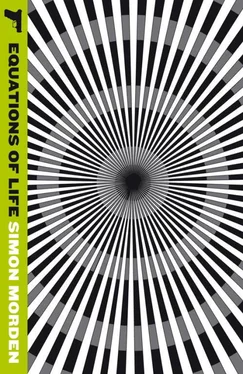
![Саймон Морден - Билет в никуда [litres]](/books/388091/sajmon-morden-bilet-v-nikuda-litres-thumb.webp)
![Саймон Морден - Билет в один конец [litres]](/books/395533/sajmon-morden-bilet-v-odin-konec-litres-thumb.webp)

